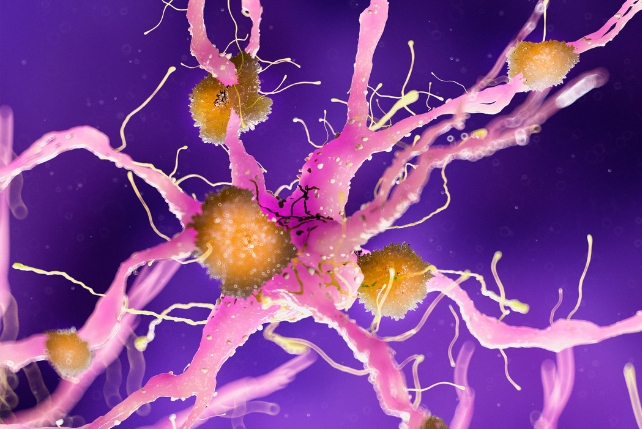We spend a 3rd of our lives asleep. And 1 / 4 of our time asleep is spent dreaming. So, for the common particular person alive in 2022, with a life expectancy of round 73, that clocks in at simply over six years of dreaming.
But, given the central position that dreaming performs in our lives, we nonetheless know so little about why we dream, how the mind creates desires, and importantly, what the importance of our desires may be for our well being – particularly the well being of our brains.
My 2022 research, printed in The Lancet’s eClinicalMedicine journal, confirmed that our desires can reveal a shocking quantity of details about our mind well being.
Extra particularly, it confirmed that having frequent unhealthy desires and nightmares (unhealthy desires that make you get up) throughout center or older age, could also be linked with an elevated danger of creating dementia.
Within the research, I analyzed knowledge from three giant US research of well being and growing old. These included over 600 folks aged between 35 and 64, and a pair of,600 folks aged 79 and older.
All of the members have been dementia-free in the beginning of the research and have been adopted for a mean of 9 years for the middle-aged group and 5 years for the older members.
In the beginning of the research (2002-12), the members accomplished a spread of questionnaires, together with one which requested about how typically they skilled unhealthy desires and nightmares.
I analyzed the info to seek out out whether or not members with a better frequency of nightmares at first of the research have been extra prone to go on to expertise cognitive decline (a quick decline in reminiscence and considering abilities over time) and be recognized with dementia.
Weekly nightmares
I discovered that middle-aged members who skilled nightmares each week, have been 4 instances extra prone to expertise cognitive decline (a precursor to dementia) over the next decade, whereas the older members have been twice as prone to be recognized with dementia.
Curiously, the connection between nightmares and future dementia was a lot stronger for males than for ladies.
For instance, older males who had nightmares each week have been 5 instances extra prone to develop dementia in contrast with older males reporting no unhealthy desires.
In girls, nevertheless, the rise in danger was solely 41 p.c. I discovered a really related sample within the middle-aged group.
General, these outcomes counsel frequent nightmares could also be one of many earliest indicators of dementia, which may precede the event of reminiscence and considering issues by a number of years and even many years – particularly in males.
Alternatively, it’s also potential that having common unhealthy desires and nightmares would possibly even be a reason behind dementia.
Given the character of this research, it’s not potential to make certain which of those theories is appropriate (although I believe it’s the former). Nonetheless, no matter which concept seems to be true – the most important implication of the research stays the identical, that’s, that having common unhealthy desires and nightmares throughout center and older age could also be linked to an elevated danger of creating dementia later in life.
The excellent news is that recurring nightmares are treatable. And the first-line medical remedy for nightmares has already been proven to lower the build-up of irregular proteins linked to Alzheimer’s illness.

There have additionally been case studies exhibiting enhancements in reminiscence and considering abilities after treating nightmares.
These findings counsel that treating nightmares would possibly assist to gradual cognitive decline and to stop dementia from creating in some folks. This will likely be an vital avenue to discover in future analysis.
The following steps for my analysis embody investigating whether or not nightmares in younger folks may also be linked to elevated dementia danger. This might assist to find out whether or not nightmares trigger dementia, or whether or not they’re merely an early sign up some folks.
I additionally plan to research whether or not different dream traits, reminiscent of how typically we bear in mind our desires and the way vivid they’re, may also assist to find out how doubtless persons are to develop dementia sooner or later.
The analysis may not solely assist to make clear the connection between dementia and dreaming, and supply new alternatives for earlier diagnoses – and probably earlier interventions – however it could additionally shed new mild on the character and performance of the mysterious phenomenon that we name dreaming.![]()
Abidemi Otaiku, NIHR Educational Scientific Fellow in Neurology, College of Birmingham
This text is republished from The Dialog below a Artistic Commons license. Learn the unique article.
An earlier model of this text was printed in September 2022.

